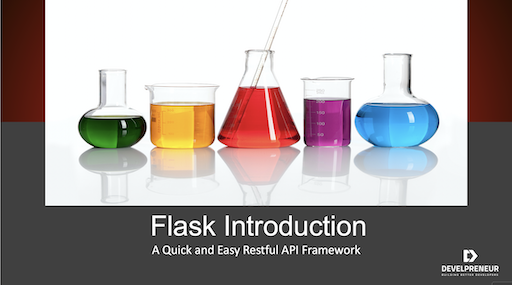We continue our Django-Python tutorials by exploring how to use Flask to create an API. This popular library/framework is easy to use and powerful. We will return to it in future sessions for other features. However, we can focus on building an API with what we have already discussed about Python.
A Micro Framework
One of the strengths of Python is how lightweight it is. The environment does not require large amounts of memory or space to get serious work done. That includes many of the frameworks such as Flask. These tools make it easy to extend functionality without requiring a substantial investment in time or resources. You may find this a bit limiting when compared to other solutions like .NET or Spring. On the other hand, why should we include numerous features that are not used?
Think of this as a “just right” framework that allows us to pull in what we need and limit adding things that are not. It is not quite a component-based approach. Nevertheless, it does have that sort of a la carte feeling when deciding what features are needed.
The Mentor-Mastermind Group
This series comes from our mentoring/mastermind classes. These classes are virtual meetings that focus on how to improve our technical skills and build our businesses. The goals of each member vary. However, this diversity makes for great discussions and a ton of educational value every time we meet. We hope you enjoy viewing this series as much as we enjoy creating it. As always, this may not be all new to you, but we hope it helps you be a better developer. Drop us a line to find out when the next one is so you can join our group.
Slide Deck: Django Models and Admin

